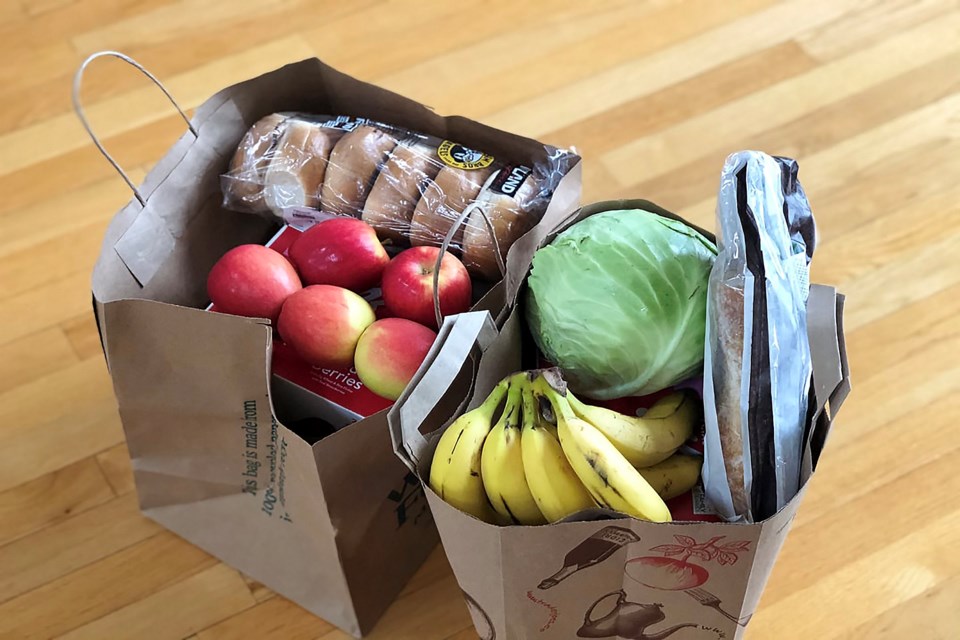Most Boulder County residents who receive Supplemental Nutrition Assistance Program, or SNAP, benefits will soon see a reduction in their monthly food assistance amounts.
The U.S. Congress will be rolling back maximum allotments from the pandemic, reducing benefits by an average of $90 per month for each person enrolled in the program.
In anticipation of the reductions, partners across Boulder County are collaborating to ensure SNAP enrollees can prepare for the change and know about other supports available to them according to a news release from the county.
SNAP serves more than 25,000 Boulder County residents each year by boosting their household grocery budgets to purchase food. There are income qualifications for the program, so a household of one earning less than $16,752 a year could qualify up to $281 per month while a household of four earning less than $34,452 could qualify for up to $939.
The county said most SNAP enrollees usually receive below the maximum amount allowed for their household size and circumstance, but in March 2020 SNAP was expanded so all enrollees could receive the maximum allowable benefit to purchase food during the COVID-19 pandemic.
A change in the federal budget bill will disconnect SNAP from the federal public health emergency beginning Feb. 28, so the SNAP maximum allotments will not occur beginning in March. Most households will see an average reduction of $90 per person or $360 per month for a family of four.
“This return to previous SNAP benefit levels will likely have a significant impact on many households,” said Susan Caskey, director of the Boulder County Department of Housing and Human Services, which administers SNAP across the county. “Every family and every person should be able to get adequate nutrition in Boulder County, and as part of a network of organizations working to end hunger, we and our partners have a number of actions and tools we want to share with people who might struggle from the reduction of their food assistance.”
To help reduce the impact on households, the county recommends that families try the following:
- If possible, roll over EBT food assistance benefits next month to help “cushion” the impact.
- Stock up on non-perishable items now while households have additional benefits. More information on that at boco.org/StockYourPantry and in Spanish here.
- Stretch food ingredients and plan to use them in more than one meal. Tips available at boco.org/StretchingIngredients and in Spanish here.
- Consider freezing produce to make fruit and vegetables last longer.
- Look at Unit Price to compare similar products at the grocery store.
Some SNAP enrollees may qualify for other supports like Temporary Assistance for Needy Families, or TANF, which provides financial assistance for lower-income families and individuals, and Medicaid, a free or low-cost health and dental coverage.
Residents are encouraged to reach out to community-based family support resource centers and food pantries for additional food and financial support.
- OUR Center (for Longmont and northern mountain residents) 220 Collyer Street, Longmont, CO 80501 | 303-772-5529 | OURCenter.org
- Community Food Share (for all Boulder County residents), 650 S. Taylor Avenue, Louisville, CO 80027 | 303-652-3663 | CommunityFoodShare.org
- Lyons Food Pantry (for Lyons and northern mountain residents) 350 Main Street, Lyons, CO 80540 | LEAFLyons.org/food-pantry/
- Emergency Family Assistance Association (for Boulder and southern mountain residents) 1575 Yarmouth Ave., Boulder, CO 80304 | 303-442-3042 | EFAA.org
- Sister Carmen Community Center (for east county residents, including Lafayette, Louisville, Superior, and Erie) 655 Aspen Ridge Drive, Lafayette, CO 80026 | 303-665-4342 | SisterCarmen.org
- Nederland Food Panty (for Nederland and southern mountain residents) 750 CO-72, Nederland, CO 80466 | 720-418-0892 | NederlandFoodPantry.org
Additional information can be found by dialing 211 or visiting 221colorado.org and www.FindHelp.org. Colorado operates a program called Everyday Eats, which helps get healthy food staples to people over 60 with low income. More information on Everyday Eats at cdhs.colorado.gov/CSFP or by calling 888-467-0418.
Boulder County Housing and Human Services encourages those needing support to reach out to them by phone at 303-441-1000, by text at 303-441-1069 or at the St. Vrain Community Hub from 8 a.m. to 4:30 p.m. Mondays through Fridays at 515 Coffman Street in Longmont.
County staff can refer people to a range of services in the community and can help in many languages, including Spanish.



